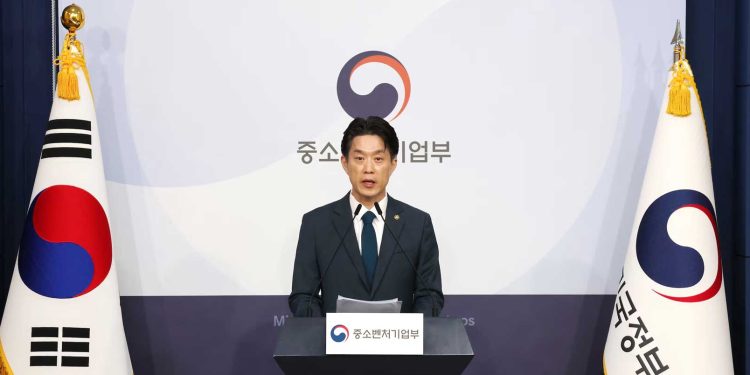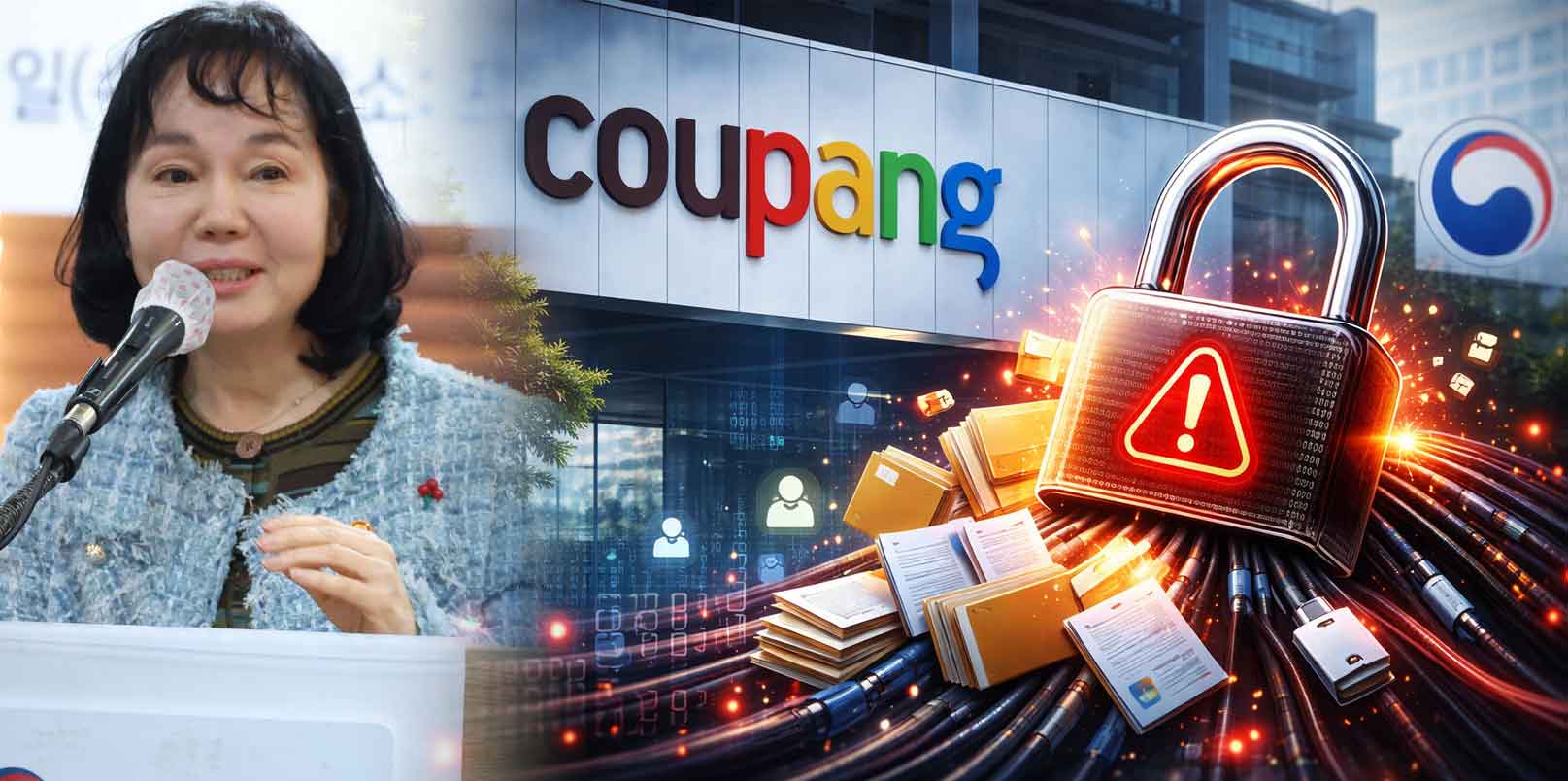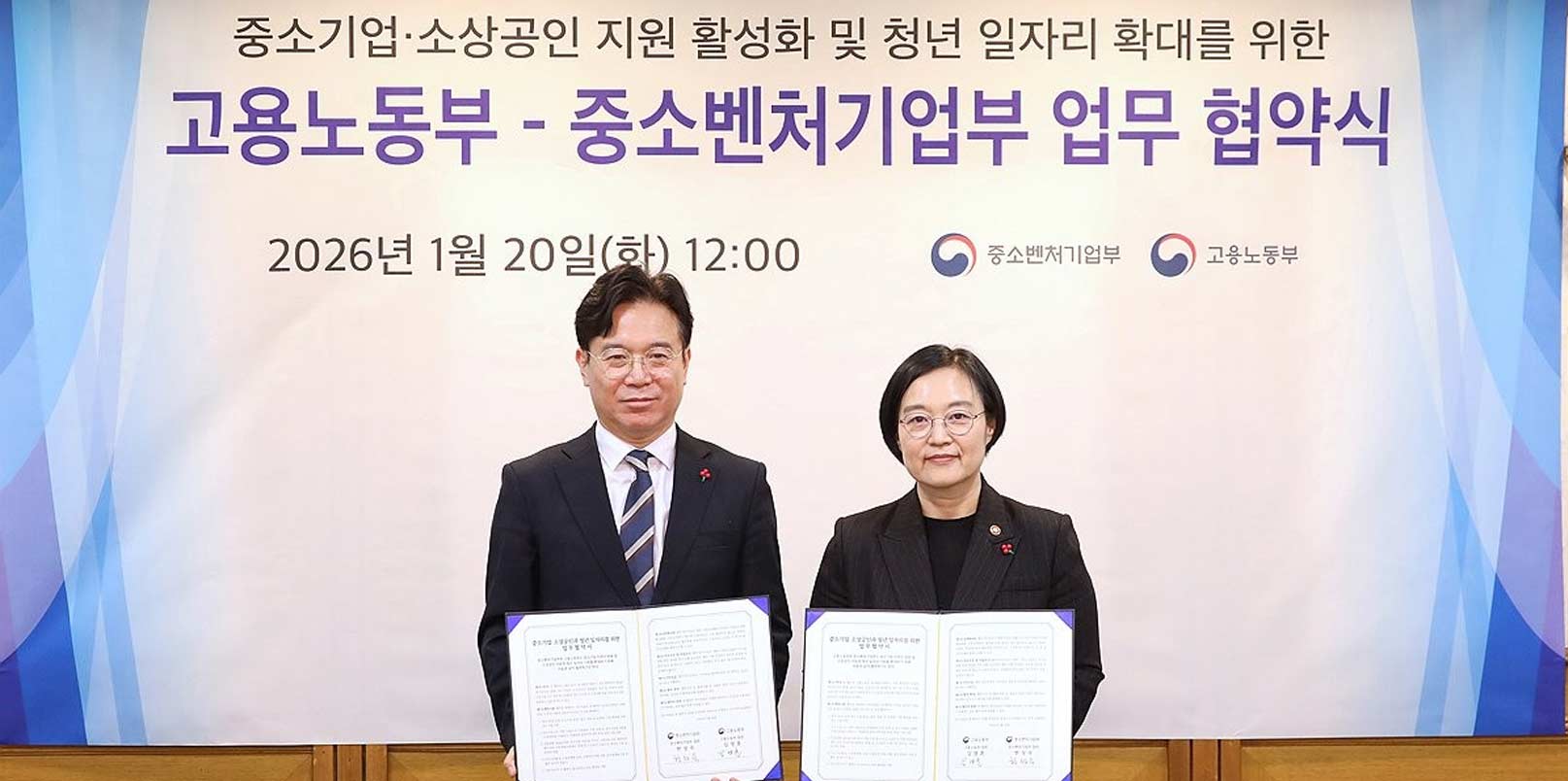South Korea has unveiled its most ambitious startup budget to date, expanding state-backed venture funding to unprecedented levels. With the Ministry of SMEs and Startups (MSS) allocating a record ₩1.1 trillion (~$800 million) to its Mother Fund, policymakers are betting heavily on AI, deep tech, and unicorn development. The question now is whether capital deployment can translate into sustainable global competitiveness for Korean startups.
MSS Unveils Record ₩16.8T (~$12.4B) Budget with Startup-Centered Focus
Previously on September 3, 2025, the Ministry of SMEs and Startups (MSS) submitted its 2026 budget plan to the National Assembly, setting the total at KRW 16.8 trillion (~ USD 12.4B), a 10.5% increase from the previous year.
vThe centerpiece is the Mother Fund, expanded to a record KRW 1.1 trillion (~ USD 800M), the highest main budget allocation in its history. Of this, KRW 550 billion (~ USD 400M) is reserved for AI and deep tech under the NEXT UNICORN Project.
Along with the NEXT Unicorn project, additional measures include:
- More than doubling the Re-challenge Fund for second-time entrepreneurs.
- Expanding secondary/M&A funds to strengthen the exit market.
- Scaling up TIPS-linked R&D across startup, scale-up, and global stages.
- Introducing the Unicorn Bridge Program to support tech firms with commercialization, overseas expansion, and investment linkages.
From National Growth Fund to Mother Fund: Where Startups Fit
The Mother Fund expansion was first outlined on September 2, 2025, when the Ministry of SMEs and Startups (MSS) submitted its 2026 budget proposal. This came just days after the government confirmed on August 29 that the National Mother Fund would double to a record KRW 2 trillion (~USD 1.5B) for 2026 — the largest increase since its creation.
On September 10, the administration then announced the expanded KRW 150 trillion (~USD 110B) National Growth Fund, with a strong emphasis on advanced industries and large enterprises. Together, these moves highlight Korea’s dual-track approach: mobilizing massive capital for strategic conglomerates while also carving out a dedicated pool for startups.
In this context, the MSS Mother Fund, set at KRW 1.1 trillion (~USD 800M) in the September 2 proposal, stands out for its explicit mandate to channel capital into startups and early-stage innovation. Half of the allocation will flow into AI and deep tech under the NEXT UNICORN Project, positioning the fund as the government’s most direct lever to grow globally competitive ventures.
By doubling down on state-backed venture capital, Korea is not offering short-term relief but attempting to reignite a venture market that has slowed since its 2021–2022 peak. The ambition is clear: build the conditions for the next wave of global unicorns in AI, biotech, semiconductors, and other frontier sectors.
Government Leaders Outline Priorities for Unicorn Growth
Vice Minister Noh Yong-seok emphasized that restructuring freed resources for genuine growth areas:
“Through strong expenditure restructuring, including reductions in loan programs and outdated projects, we secured fiscal space to reinvest in new areas of real growth. The Mother Fund will be supplied at a record KRW 1.1 trillion (~ USD 800M), with half going into AI and deep tech.”
Venture Policy Director Kim Bong-deok highlighted the significance of the scale:
“This is the first time the main budget exceeds KRW 1 trillion (~ USD 740M) for the Mother Fund. Including other ministries’ accounts, total Mother Fund scale is already approaching KRW 2T. While large, Korea’s venture investment market has contracted since its 2021–2022 peak, and strong policy rationale exists for this expansion, especially in deep tech and unicorn development.”
MSS 2026 Mother Fund and Budget Expansion: The Significance
The expansion marks a structural shift in Korea’s venture capital policy. By allocating half the Mother Fund to AI and deep tech, the government is signaling priority sectors for global competitiveness.
The increased TIPS-linked R&D support will be critical in giving startups a pathway from early-stage validation to international scale-up. At the same time, the government’s emphasis on secondary and M&A funds could provide investors with much-needed mechanisms to strengthen Korea’s underdeveloped exit market.
Globally, Korea’s bet on unicorn growth positions it alongside ecosystems like Israel and Singapore, which have leveraged government-backed funds to stimulate innovation. Yet execution risks remain — from potential bottlenecks in sub-fund formation to over-reliance on state-driven capital deployment.
Can Policy Deliver Global Competitiveness?
Finally, Korea’s 2026 startup budget underscores both ambition and urgency: nurturing unicorns in AI, biotech, semiconductors, and other frontier industries is now central to its economic strategy. For founders and investors, the record KRW 1.1T (~ USD 800M) 2026 Mother Fund presents new opportunities but also raises questions about efficiency and private capital crowding-in.
As Korea attempts to consolidate its status as a top-4 global venture nations, the effectiveness of this fund will shape not only domestic growth but also the country’s international competitiveness. Global stakeholders will be watching whether policy translates into scalable companies — and real unicorns.
– Stay Ahead in Korea’s Startup Scene –
Get real-time insights, funding updates, and policy shifts shaping Korea’s innovation ecosystem.
➡️ Follow KoreaTechDesk on LinkedIn, X (Twitter), Threads, Bluesky, Telegram, Facebook, and WhatsApp Channel.






